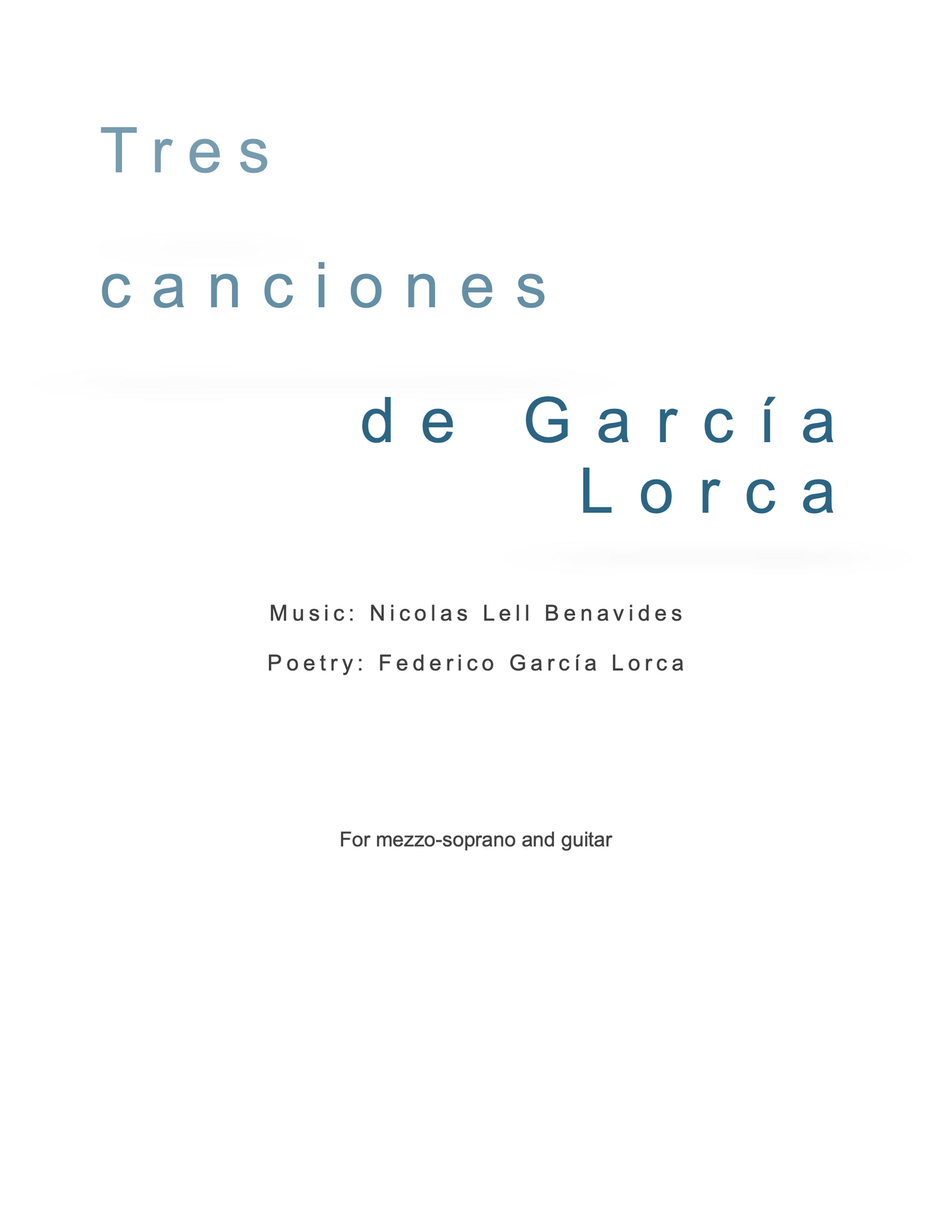BCP Music
Nick Benavides - Tres Canciones de Garcia Lorca
Nick Benavides - Tres Canciones de Garcia Lorca
Couldn't load pickup availability
Tres Canciones de Garcia Lorca - for Mezzo Soprano & Guitar
(Score)
Composer's Note
Though Federico García Lorca was murdered in 1936 by Spanish Nationalist forces at the beginning of the civil war, his words and ideas have found a place in the collective imagination. García Lorca is primarily known as a once in a lifetime poet, playwright, and director, however he began his university studies with a primary focus on music composition and has even penned a number of pieces, including words and music for his Canciones españolas antiguas. Many of his poetry collections are themselves inspired by music, such as Canciones, Poema del canto jondo, and Romancero Gitano. Ultimately his talents for literature won out and his creative pursuits received their widest acclaim in his books of plays and poetry. His life and words have inspired dozens of pieces by composers such as Francis Poulenc, Heitor Villa-Lobos, Silvestre Revueltas, George Crumb, Osvaldo Golijov, Dmitri Shostakovich, and Gabriela Lena Frank to name a handful. His life intersected with many other great Spanish artists, including friendships with Luis Buñuel and Salvador Dalí (whom he pursued romantically, though the feelings were never mutual). His association with composer Manuel de Falla was instrumental in promoting a flamenco festival called El Concurso de Canto Jondo, and García Lorca contributed the libretto to an unfinished opera by Manuel de Falla called Lola, la Comedianta. The circumstances of his life, his art, his political activism, his sexuality, and his untimely murder at the hands of fascists will continue to inspire artists for years to come.
I first encountered García Lorca’s work by way of English translations, of which there are many. This cycle was originally set in English while I was a student in San Francisco, and though I enjoyed the process I felt a little as though something was lacking. I revisited this piece recently and reread the poetry in Spanish and found a deep connection to the language and color that I was previously missing, and it felt right to revise them to feature the words as they were originally heard. García Lorca’s poetry is clear and direct; even in his most sensitive moments his choices are bold and command attention from the reader. In ¡Ay! we are faced with a lonely despair by choice, interrupted by the wind and bonfires on the horizon. El gran espejo asks us to look up to the sky and ponder the greatness that is our life and existence. Finally, Cancioncilla del primer beso is a tender celebration of a new love. This is my humble contribution to the vast world of music that is derived from García Lorca’s life and words.
Share


